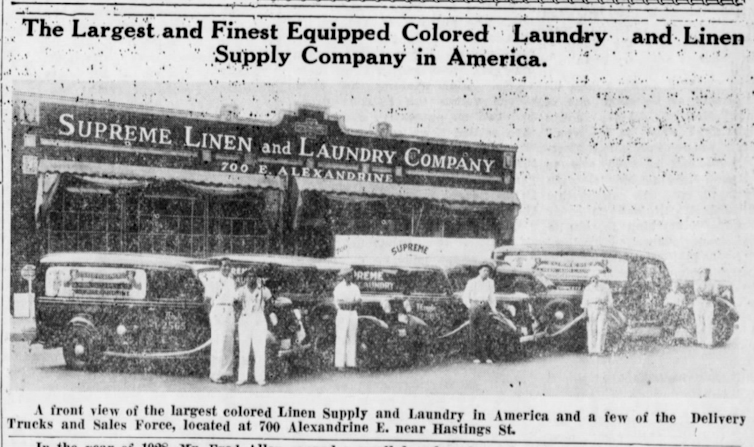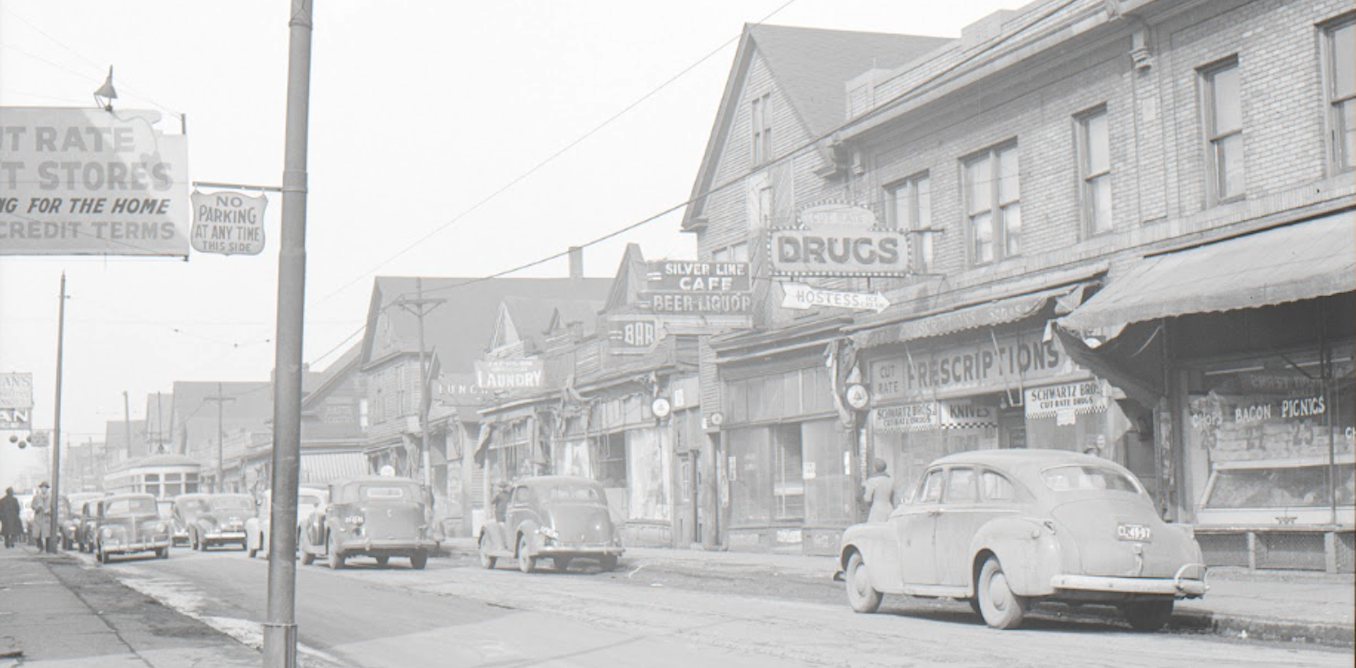During the Great Migration from the 1910s to the 1960s, Black-owned businesses played a crucial role in helping African Americans move from the South to other parts of the United States. While the traditional view of this migration often highlights laborers seeking factory jobs, many African Americans were actually driven by entrepreneurial ambitions.
This aspect of history is explored in the upcoming book, “Freedom Enterprise: Black Entrepreneurship and Racial Capitalism in Detroit,” set to be published in 2025.
Over six million African Americans left the South between 1910 and 1970, heading to cities like Detroit, Chicago, New York, and Los Angeles. This movement had significant political, cultural, and social effects, as migrants sought full political and economic freedoms that were denied to them in the Jim Crow South.
For historians focusing on Black businesses, like Kendra Boyd, understanding why these entrepreneurs chose cities like Detroit over factory jobs is paramount.
Leaving the South
Carter G. Woodson, a pioneering African American historian, identified the lack of business opportunities as a major factor for the mass migration starting in the mid-1910s.
“In most parts of the South the Negroes are still unable to become landowners or successful business men,” Woodson wrote in 1918.
Despite the existence of successful Black businesses in the South, entrepreneurs faced threats like lynchings and racial violence. The infamous destruction of “Black Wall Street” in Tulsa, Oklahoma, is an example of such violence, which often pushed Black entrepreneurs, including Detroit-bound figures like Willis Eugene Smith and Berry Gordy Sr., to seek safer opportunities elsewhere.
For many, the decision to relocate was cemented by the belief that better opportunities for business and upward mobility could be found outside the South.
Migrant Entrepreneurs’ Services Essential
Many Southern entrepreneurs moved north, significantly increasing Detroit’s African American population by 611% from 1910 to 1920, making it one of the largest Black populations in the nation.
Though Detroit offered new opportunities, segregation persisted in the North. However, this also created a demand for Black-owned businesses that catered to the needs of Black migrants. By 1926, 85% of Detroit’s Black population were migrants, as reported in “The Negro in Detroit.”
Businesses like the Creole Hand Laundry and the Home Milling Company capitalized on these opportunities by offering services and products that catered to Southern tastes. Supreme Linen and Laundry, established by Fred and Callie Allen, supported Black-owned restaurants and hotels, providing essential goods and services.

The Detroit Tribune, CC BY-ND
A Mecca for Black-Owned Business
By the 1940s, Detroit was recognized for having the highest number of Black-owned businesses in the U.S., many of which were operated by Southern migrants. Organizations like the Detroit Housewives’ League played a crucial role in supporting this business community, with over 10,000 members promoting and supporting Black enterprises through various initiatives.
Despite challenges like segregation and lending discrimination, Black entrepreneurs transformed Detroit’s landscape, contributing to a significant population increase from 85,000 in 1925 to 300,000 by 1950.
Detroit’s Black business community was concentrated in areas known as Black Bottom and Paradise Valley. Unfortunately, these neighborhoods were later targeted for urban renewal and freeway construction, which disrupted the thriving community and contributed to the racial wealth gap.
Read more of our stories about Detroit.






